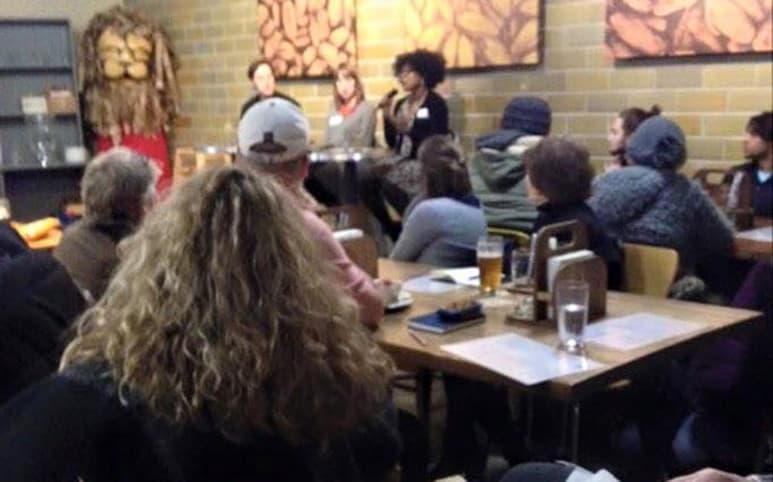The art of spoken word is like an old friend to Black people, people of color, and other marginalized communities. The two have depended on and grown with each other for decades, even centuries.
Since the beginning, Africa has had a strong commitment to the oral tradition. Many African countries and tribes didn’t have a written language, but still held on to their history and morals. The art of storytelling was born out of necessity to pass on one generation’s knowledge to the next.
Though storytelling may be less prominent today, it’s still prevalent within the Black community. No holiday, cookout, or family gathering exists in my family without a history told in some spectacular way. Whether it’s about my grandparents moving north from Mississippi in hopes for better jobs, or my father breaking his pinky fighting to protect his sister, each story holds a significant weight. The telling of it is theatrical, yet essential.
Even ancient Hindus understood the power of speaking. They honor a practice of mantras, words or phrases spoken to connect and influence the world within, and surrounding the speaker. Hindus describe speech itself as a “goddess,” praised for the power it wields. For ages, we’ve understood the story is just as important as how it’s told.
Within the last few decades, spoken word began to redefine itself, refining its methods for maximum impact. We see this first in the Black community.
Phrases like “speak truth to power” (championed by Bayard Rustin) became the foundation for everyday Black American citizens demanding moral change for an immoral country during the civil rights movement.
Our stories, voices, and truths continue to be our sharpest sword in the battle against injustice. When Marc Kelly Smith started the first poetry slam at a jazz club in Chicago during the late 80s, its popularity was immediate. The civil rights era was over, but there was still so much more we needed to say, and slam poetry provided that outlet.
Spoken word began to spread among the Black community, tenaciously taking on its new form. It became more poetic, performative and personal. In 2001, the first youth poetry slam emerged, “Louder Than a Bomb” gave adolescent activists of the Chicago area a platform to speak their minds.
When Russell Simmons produced Def Poetry Jam in 2002, slam poetry and spoken word became even more visible. The TV series showed primarily Black performers sharing their poetic pieces on a stage that transformed into a screen, projecting this art form with all its protest and personality right into the living room of thousands of Americans.
This opened the floodgates. Spoken word became more widespread than ever, especially among the marginalized. It challenged them to take up the sword and claim their space on the stage and speak truth to power.
Spoken word may have started Black, but it is now so much more than that. In the past 10 years, other marginalized groups like the LGBTQ+ community, feminists, and sexual assault survivors started performing their poetry on stages in brave, rebellious, honest ways.
It has opened itself wide to all those marginalized—a reminder to all that each and every one of us is born with a sword only we can carry. Our voice. Our story.



